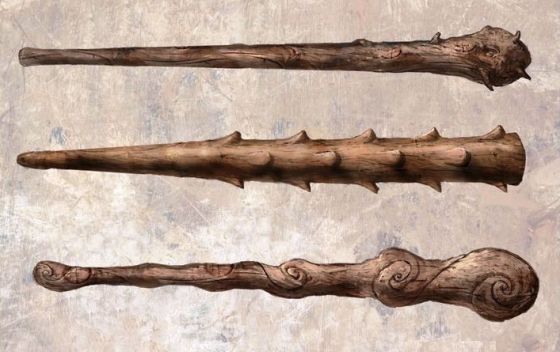Difference between revisions of "Club (weapon)"
Tao alexis (talk | contribs) (→Combat) |
Tao alexis (talk | contribs) |
||
| Line 1: | Line 1: | ||
[[File:Club (weapon) b.jpg|right|560px|thumb]] | [[File:Club (weapon) b.jpg|right|560px|thumb]] | ||
| − | The '''club''', also the | + | The '''club''', also called a also the cudgel, bludgeon, shillelagh, bang or knobkerrie, serves as a versatile [[Melee|melee]] [[Weapons List|weapon]] and a [[Missile Weapons|hurled projectile]], traditionally crafted from hardwood. Typically, it takes the form of a wooden shaft measuring approximately 24 to 30 inches in length, featuring a reinforced, rounded knob at one end. |
| + | __TOC__ | ||
| + | It has the benefit that anyone can fashion a makeshift club from everyday objects such as a table-leg, a fragment of a bannister or even a belaying pin — any might be employed as an [[Using Found Objects as Weapons|improvised club]] if no other weaponry is at hand. | ||
| − | + | Weapons with spikes, metal-weighted heads, chiseled sharp edges or set with metal studs belong to a different class of weaponry and are more appropriately categorized as [[Mace (weapon)|maces]] or [[Godentag (weapon)|godentags]]. These specialized variations are described elsewhere. | |
== Combat == | == Combat == | ||
| + | |||
| + | |||
| + | |||
[[Damage (hit points)|Damage]] from the '''club is 1-6''', adjusted by [[Strength (ability stat)|strength]]. When [[Missile Weapons|hurled]], the weapon's range is very poor, as shown on the table. Hitting with a hurled club can be improved by a high [[Dexterity (ability stat)|dexterity]]. | [[Damage (hit points)|Damage]] from the '''club is 1-6''', adjusted by [[Strength (ability stat)|strength]]. When [[Missile Weapons|hurled]], the weapon's range is very poor, as shown on the table. Hitting with a hurled club can be improved by a high [[Dexterity (ability stat)|dexterity]]. | ||
Revision as of 19:36, 22 October 2023
The club, also called a also the cudgel, bludgeon, shillelagh, bang or knobkerrie, serves as a versatile melee weapon and a hurled projectile, traditionally crafted from hardwood. Typically, it takes the form of a wooden shaft measuring approximately 24 to 30 inches in length, featuring a reinforced, rounded knob at one end.
Contents
It has the benefit that anyone can fashion a makeshift club from everyday objects such as a table-leg, a fragment of a bannister or even a belaying pin — any might be employed as an improvised club if no other weaponry is at hand.
Weapons with spikes, metal-weighted heads, chiseled sharp edges or set with metal studs belong to a different class of weaponry and are more appropriately categorized as maces or godentags. These specialized variations are described elsewhere.
Combat
Damage from the club is 1-6, adjusted by strength. When hurled, the weapon's range is very poor, as shown on the table. Hitting with a hurled club can be improved by a high dexterity.
| Bow | Point Blank |
Short | Medium | Long |
|---|---|---|---|---|
| Club | 2 | 3-5 | 6-7 | 8-9 |
At 3½ lbs., the club is considered to be a "light weapon," so it's used with one hand and takes 1 action point to draw from a character's belt. If a roll to hit produces a fumble, the club will break on a 1 in 4. It's the right size and length to be used while on horseback.
The club is a hereditary weapon in various forms, shown in brackets, for characters raised in the Dutch Colonies (knop), Leinster & Munster (shillelagh), Northumbria & Ulster (cudgel), among Plains Natives in America and the Zulu (knobkerrie). It's favoured among persons whose progenitor is a hermit, innkeeper and sailor. This grants a +1 bonus to hit for these peoples.
The 1st level druid spell, shillelagh, transforms an ordinary club of that type into a temporary magical weapon.
